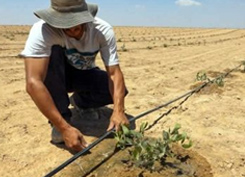Nov . 14, 2024 04:22 Back to list
type of pvc pipe product
Understanding the Types of PVC Pipe Products
Polyvinyl Chloride, commonly known as PVC, is one of the most widely used polymers in the world. Its versatility, durability, and cost-effectiveness make it an ideal choice for a variety of applications, especially in construction and plumbing. PVC pipes are prominent in both residential and industrial applications. In this article, we will explore the different types of PVC pipe products, their specifications, and the various applications they serve.
1. PVC Pressure Pipes
PVC pressure pipes are designed to transport water and other liquids under pressure. These pipes are typically characterized by their ability to withstand high internal pressures, making them ideal for municipal water supply systems, irrigation, and sewage systems. PVC pressure pipes come in various sizes, typically ranging from 1/2 inch to several feet in diameter. They are classified based on their pressure rating, which indicates the maximum pressure they can handle.
2. PVC Sewer Pipes
Sewer pipes made of PVC are designed for the efficient removal of wastewater. They are resistant to chemicals and corrosion, which makes them suitable for sewerage and drainage applications. PVC sewer pipes are often used in municipal infrastructure and are advantageous in that they are lightweight and easy to install. They usually come with a rubber gasket at the joint to guarantee a leak-proof experience.
3. PVC Drainage Pipes
Unlike sewer pipes, PVC drainage pipes are primarily used for surface water drainage. They are designed to handle lower pressures and are essential in managing stormwater run-off or residential drainage systems. The slotted or perforated variants allow water to flow through while filtering out solids, making them a popular choice for agricultural applications as well as construction sites.
type of pvc pipe product

Electrical conduits made from PVC are used to protect electrical wiring. They are available in rigid and flexible forms, providing options for various applications. Rigid PVC conduits are used for permanent installations, while flexible variants are ideal for projects requiring bending and twisting. The non-conductive nature of PVC makes these conduits safe for electrical applications, reducing the risk of shorts and electrical faults.
5. PVC Plumbing Pipes
PVC plumbing pipes are widely used in residential and commercial plumbing systems. They are typically used for cold water lines and are exceptionally resistant to corrosion and rust, which increases their longevity. Available in various sizes, these pipes are easy to cut and install, making them a popular choice for DIY plumbing projects.
6. Schedule 40 and Schedule 80 PVC Pipes
Two common classes of PVC pipes are Schedule 40 and Schedule 80, differentiated by their wall thicknesses. Schedule 40 pipes are suitable for residential and light commercial applications, while Schedule 80 pipes possess greater pressure capacity and are recommended for industrial applications. The thicker walls of Schedule 80 pipes afford them added strength and resistance, making them ideal for high-pressure situations.
7. Specialty PVC Pipes
Beyond the general categories, there are also specialty PVC pipe products for more specific needs. For instance, CPVC (Chlorinated Polyvinyl Chloride) pipes are often used for hot water systems due to their higher temperature tolerance compared to standard PVC. There are also modified versions with added stability against ultraviolet (UV) light, which are ideal for outdoor applications.
Conclusion
In conclusion, the variety of PVC pipe products available today underscores the material's adaptability to different applications. Whether for plumbing, drainage, electrical conduit, or specialized uses, PVC pipes offer practical solutions that emphasize durability and efficiency. Understanding the types of PVC pipes available can help in selecting the right product for any project, paving the way for effective installations and long-lasting performance. As infrastructure needs continue to evolve, PVC pipes will undoubtedly remain at the forefront of engineering and construction solutions.
-
High-Quality PVC Borehole Pipes Durable & Versatile Pipe Solutions
NewsJul.08,2025
-
High-Quality PVC Perforated Pipes for Efficient Drainage Leading Manufacturers & Factories
NewsJul.08,2025
-
High-Quality PVC Borehole Pipes Durable Pipe Solutions by Leading Manufacturer
NewsJul.08,2025
-
High-Quality PVC Borehole Pipes Reliable PVC Pipe Manufacturer Solutions
NewsJul.07,2025
-
High-Quality UPVC Drain Pipes Durable HDPE & Drain Pipe Solutions
NewsJul.07,2025
-
High-Quality Conduit Pipes & HDPE Conduit Fittings Manufacturer Reliable Factory Supply
NewsJul.06,2025

